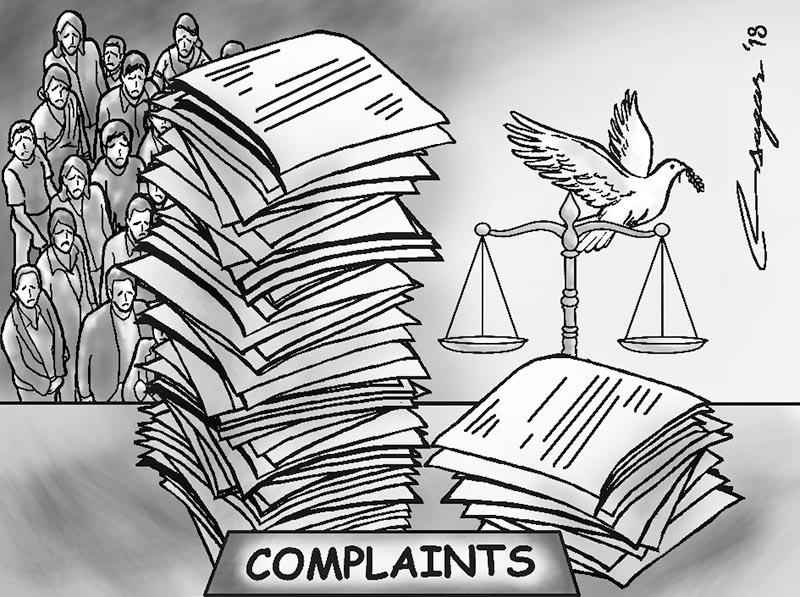‘Laws made thru political consensus unacceptable’
Kathmandu, January 22
Victims of the decade-long Maoist conflict today said they would not accept any amendment to the Transitional Justice Act pushed on the basis of political consensus.
The government is preparing to amend the Enforced Disappearances Enquiry, Truth and Reconciliation Commission Act 2014 on the basis of six factors — the Comprehensive Peace Accord; Nepal’s national and international obligations related to human rights; fundamental principles of transitional justice; decisions and orders of the Supreme Court; sentiments of conflict victims; and Nepal’s legal and political processes.
The government has to amend the act also to extend the tenure of the two transitional justice mechanisms—Truth and Reconciliation Commission and Commission of Investigation of Enforced Disappeared Persons—which is expiring on February 9.
Conflict Victims Common Platform, adopting a charter, has demanded restructuring the two commissions and forming of a high-level mechanism to oversee the transitional justice process. However, with just around two weeks remaining for the expiry of the commissions’ tenure, the government and political parties are still undecided as to what to do.
Issuing a statement, the CVCP said they demanded the formation of the mechanism with representation from all stakeholders, including political parties, security agencies and the victims, after the failure of the government’s ‘unilateral process’.
“It is irresponsible of the government to not take any step even two months after the victims put forth their roadmap,” stated CVCP. “It is funny that the government, which formed an informal dialogue mechanism that worked on a draft act for six months behind closed doors, does not want to set up a formal dialogue mechanism.”






